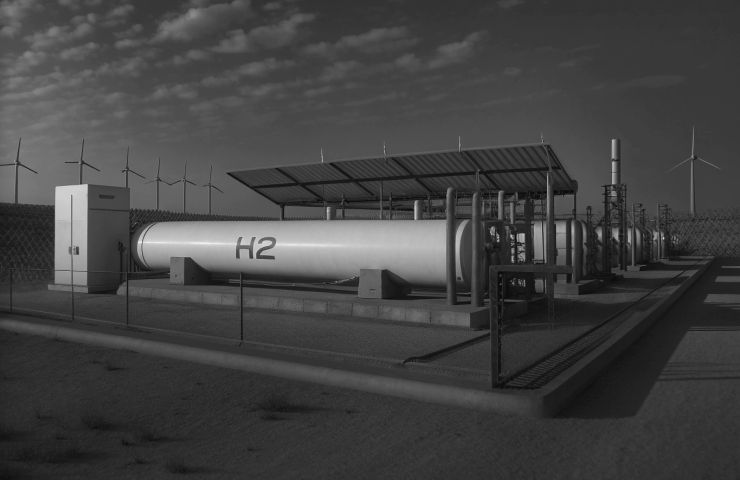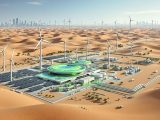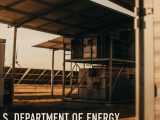
Green Hydrogen Production Accelerates: ACWA Power and EnBW Launch Yanbu Hub
July 21, 2025ACWA Power and EnBW Team Up for Saudi Green Hydrogen Mega-Project
ACWA Power from Saudi Arabia and Germany’s EnBW have just signed a joint development agreement on July 21, 2025, marking the official start of the first phase of the ambitious Yanbu Green Hydrogen Hub. Located in the industrial port city of Yanbu, this project isn’t just another clean energy initiative—it’s shaping up to be a future powerhouse for exporting green hydrogen and clean ammonia to Europe. The goal? Get the hub up and running commercially by 2030.
What You Need to Know
- The focus is on green hydrogen production through electrolysis powered entirely by renewable energy
- The entire value chain is covered: renewables, desalination, hydrogen production, ammonia production, and dedicated export facilities
- Europe is the primary destination for both hydrogen and clean ammonia, helping diversify its energy imports
- This isn’t a solo effort—there’s a network of global partners behind it, from utilities to infrastructure giants
- The project supports Saudi Arabia’s Vision 2030—a national effort to lead in renewable energy and move beyond oil
Why Yanbu Makes Sense
Yanbu’s got the right ingredients: a strong industrial base, existing water and energy infrastructure, and a location that sits directly on major East-West shipping routes. That makes it a smart choice for scaling up exports of hydrogen and ammonia in massive volumes.
Once a hub for oil refining and petrochemicals, Yanbu is now reinventing itself, stepping into the spotlight as a clean energy gateway to the world—perfectly aligned with Saudi Arabia’s clean energy transformation.
The Tech That’ll Drive It
- Electrolysis Powered by Renewables: Using solar and wind to split water into hydrogen and oxygen—zero emissions, all clean energy
- Ammonia Synthesis: Turning green hydrogen into ammonia (NH3) for easier storage and shipment across oceans
- High Voltage Direct Current (HVDC): Moving renewable electricity more efficiently across long distances—key for connecting to Europe
Leading global names are backing the tech stack: GE Vernova, Siemens Energy, Hitachi Energy, and Prysmian are all in for energy and grid systems. CESI is stepping in to provide technical advice, especially on the tricky bits—like getting electricity across borders.
A Bridge to Europe’s Hydrogen Future
For Europe, this project couldn’t come at a better time. As it looks to move away from Russian gas and cut down on carbon-heavy fuels, energy players like EnBW are stepping up with big plans for hydrogen. This project is a key part of the puzzle, feeding Europe’s growing hunger for clean fuel, especially for industry and heavy transport.
And there’s more. Other big European names—TotalEnergies Renewables SAS, Edison S.p.A., and Zhero Europe B.V.—have all signed on too, via MOUs. It’s turning into a full-fledged hydrogen alliance, with new infrastructure tying in neatly with wider regional projects like the India-Middle East-Europe Economic Corridor (IMEC).
Wider Ripple Effects
- Thousands of jobs expected in Saudi Arabia across construction, engineering, and plant operations
- Major upgrades coming to desalination plants and port infrastructure
- Cutting-edge European tech in hydrogen production and electricity transmission gets a new home in the Gulf
- Strategic benefit for Europe: more secure, low-carbon energy imports
That said, it’s not all smooth sailing. These mega-projects come with potential hiccups—rising costs, red tape in international green trade, and questions around whether the infrastructure can handle the scale.
The Big Picture
Make no mistake—this isn’t just another green hydrogen project. What ACWA Power and EnBW are building could reshape how nations share clean energy. With Saudi Arabia’s natural edge in solar, wind, and ports, paired with Europe’s push for decarbonization, this partnership is a living blueprint for global cooperation in the energy transition.
If it all comes together, Yanbu won’t just join the green energy revolution—it could lead it. Think of it as the Middle East’s Rotterdam, but for green hydrogen, ammonia production, and a zero-emissions future.



 With over 15 years of reporting hydrogen news, we are your premier source for the latest updates and insights in hydrogen and renewable energy.
With over 15 years of reporting hydrogen news, we are your premier source for the latest updates and insights in hydrogen and renewable energy.